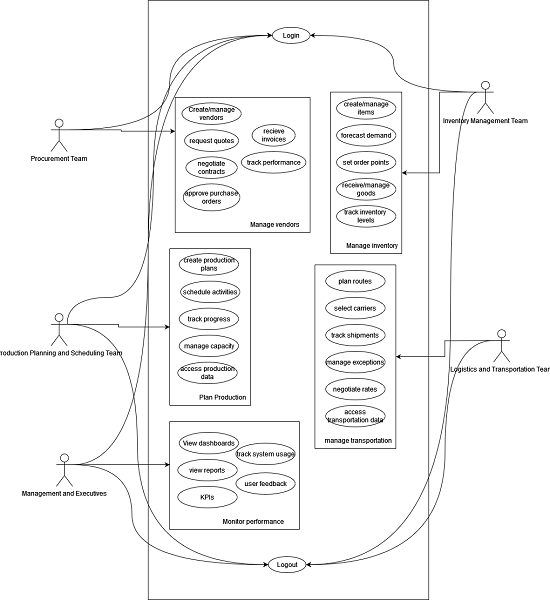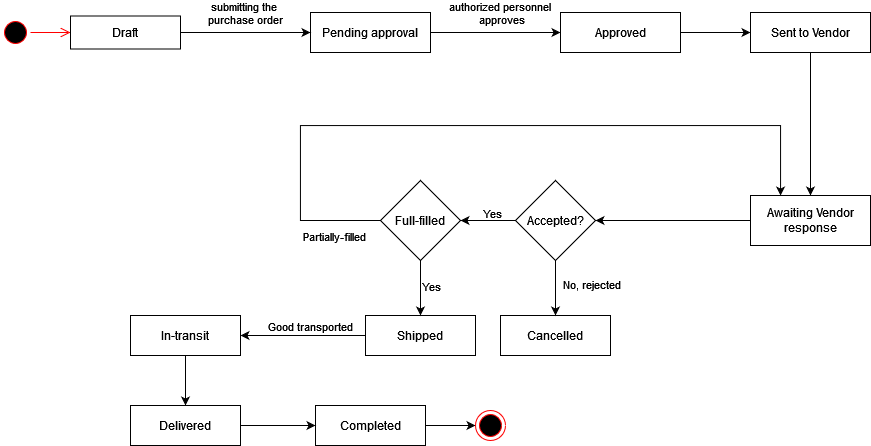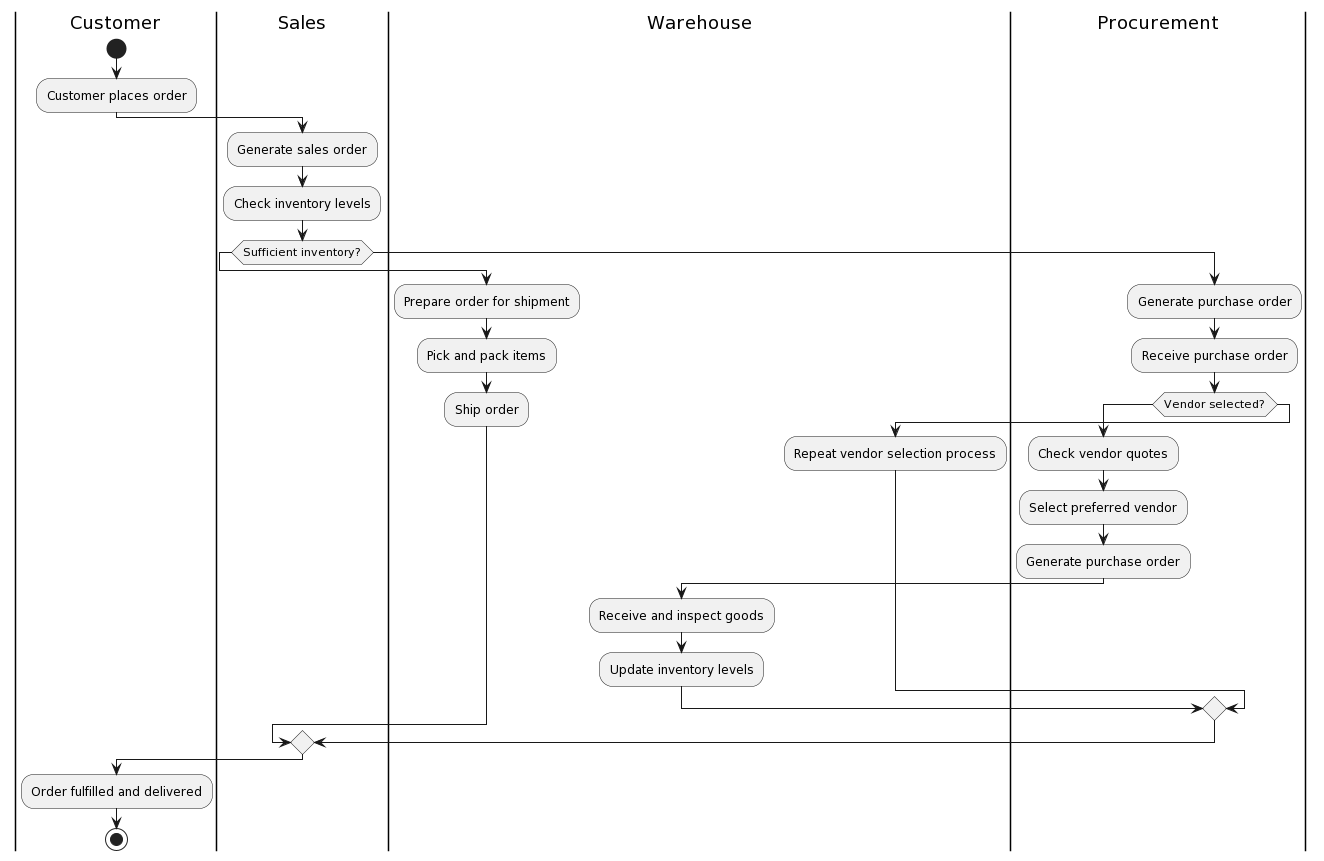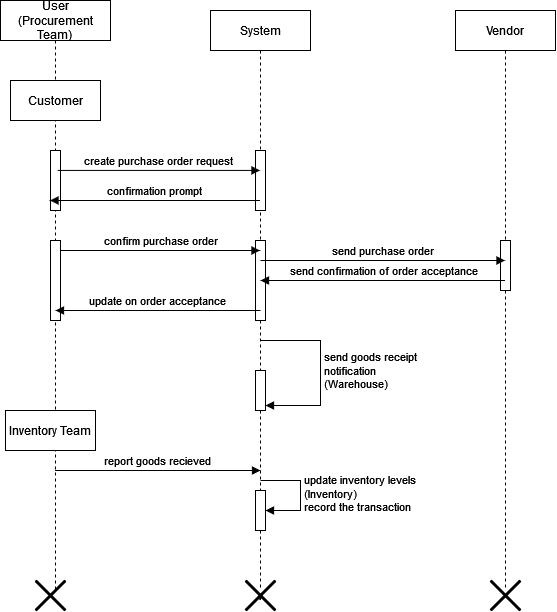Ijraset Journal For Research in Applied Science and Engineering Technology
- Home / Ijraset
- On This Page
- Abstract
- Introduction
- Conclusion
- References
- Copyright
Navigating Ethical Dilemmas: The Role of AI in Supply Chain Decision-Making
Authors: Frania Chettiar, Prof. Jish Joy
DOI Link: https://doi.org/10.22214/ijraset.2024.64552
Certificate: View Certificate
Abstract
Current times in which supply chains are increasingly viewed as being uncouth in the practice of their operations call for the integration of AI to thereby solve ethical dilemmas within such chains. This paper delves into the role played by AI to navigate ethical dilemmas in supply chains, thereby discussing its ability to resolve challenges such as labor rights, environmental sustainability, and responsible sourcing. Through this literature review, the current research is able to draw on existing work on AI applications within the supply chain and highlight gaps concerning ethical implications. The paper illustrates the real benefits and challenges surrounding the application of these technologies through case studies of those organizations which successfully implement AI-driven tools for ethical decision-making. The framework proposed should, therefore, bring about actionable recommendations to the business on attaining such a balance between operational efficiency and ethical responsibility. Lessons contained in the overall suggest the necessary use of AI to construct a more transparent and accountable supply chain landscape but lead to a more sustainable and ethically sound business landscape.
Introduction
I. INTRODUCTION
Supply chain management today is one of the essential ingredients that help organizations in almost all sectors thrive in this world of complex, highly interconnected global economies. At the same time, while businesses continue streamlining and optimizing operations for savings, they are not insulating themselves from a marred landscape of ethical dilemmas. For instance, violations of labor rights, environmental degradation, and corrupt sourcing are all hot-button issues for consumers, regulators, and other stakeholders. Organizations thus have to bring ethics into play along with operational efficiency.
Artificial intelligence, in that respect, is a revolutionary technology in order to transform supply chain operations. Organizations can draw inferences from large data sets, take time-bound decisions based on real-time information as well as drive specific kinds of decisions by tools developed using AI-technologies. Unfortunately, how it plays a role in ethical decision-making is largely a land of unexplored territory in the context of a supply chain. While there have been various studies on how the use of AI can help organizations save costs while increasing efficiency, there lies a greater requirement now to find a way in which such technologies can be used for organizations to address ethical challenges and practice responsibly.
This research delves into the nexus that exists between AI and ethical decision-making in supply chains, which establishes the context for AI in an organization's ability to navigate through seemingly insurmountable ethical dilemmas. The study will determine the best practices, challenges, and opportunities surrounding the adoption of AI for ethical purposes through in-depth literature review and case analysis. In addition, a concrete framework that can help organizations implement AI responsibly and put the ethics alongside the operational goals of an organization will be proposed.
This paper will therefore explore some of the critical issues that arise from the employment of AI technologies in supply chain management; thus it will contribute to an increasing literature within ethical supply chain management with practical insights to organizations seeking to enhance ethicalness through AI technological capabilities.
II. LITERATURE REVIEW
Application of AI in SCM has increased significantly due to the ability to increase operating efficiency and flexibility. Major impacts from AI technologies like machine learning, predictive analytics, and automation on multiple processes within the supply chain have been reported. According to Waller and Fawcett (2013), AI can enable forecasting improvements; hence, inventory cost and service delivery will improve [1].
Ethics in SCM are receiving much importance these days as organizations look to ensure their corporate social responsibility. Some of the ethical issues considered are labor rights and environmental sustainability among many others. As according to Chae (2019, ethical sourcing practices allow an organization to adhere to the regulations and meet the expectations of an increasing number of customers who have an inclination towards ethical sourcing [2]. Giannakis and Papadopoulos 2016, outline the transparency with ethical consideration in supply chains to curb risks and uphold brand reputation [3].
AI can be used to enable the making of ethical choices in a supply chain through the provision of analysis tools for complex data sets and identification of risks associated with an ethical nature. According to Duflou et al. (2012), AI technologies can be used for the enhancement of transparency and accountability in supply chain operations by tracking what a firm does with respect to ethical standards [4]. Thirdly, Raut et al. (2021) relate how AI insights based on data concerning supplier practice enhance better decisions regarding supply chains [5]. However, these applications notwithstanding, a review of the literature shows that studies which examine in detail how AI is implicated in ethical decision-making are virtually nonexistent, thus creating an important gap this paper seeks to fill.
There are many organizations which have implemented AI in their ethical decision-making processes successfully. For instance, the case study by Hult et al. (2021) vividly shows how a multi-country retailer applied AI analytics in tracing the compliance of suppliers to labor standards and how transparency accountability was enhanced [6]. On the same note, Bowers et al. (2020) illustrates the capability of AI in evaluating the risks involved in sourcing from suppliers for ethical sourcing by making better-informed decisions [7]. These above cases well express the concrete achievements of AI in motivating companies to adopt ethical supply chain management but bring a sense of developing further studies across various industries.
Despite the volumes of research on AI operational benefits, few studies have analyzed its ethical impact. With an inordinate number of publications concerning technical and theoretical AI capabilities, their ethical implications in the process of decision-making are still pending. For instance, Kauffman et al. (2018) give a comprehensive explanation of AI applications in SCM but do not mention the ethical dimensions under which AI is implemented [8]. The gap therefore opens up an opportunity for further studies that focus on the need for evidence in the embodiment of AI through ethical practice [9].
More and more organizations are embracing AI technologies. Hence, frameworks that consider ethical values must be designed. IEEE suggests the responsible implementation of AI in various sectors such as the supply chain [10]. There is a need for pragmatic frameworks to help various organizations derive decisions with AI responsibly.
This literature review opens up scopes for further research on the role AI plays in the making of ethical decisions within supply chains, which is an issue with enormous opportunities for efficiency enhancement with relatively untapped implications for ethical practices. This research attempts to fill those gaps by understanding how AI might be effectively integrated into supply chain practices so as to promote more positive behaviors, resulting in actionable insights for organizations.
III. METHODOLOGY
This research uses a qualitative research methodology in investigating the adoption of Artificial Intelligence in ethical decisions in supply chains. The methodology encompasses an in-depth literature review and analysis of various diagrams that explain and describe the processes undertaken by this research. The diagrams analysed include a Use Case Diagram, State Diagram, Swim lane Diagram, Sequence Diagram.
A. Literature Review Approach
A literature review can be the first step in identifying the work already done on AI applications in supply chains and their ethical implications. Methodology of Literature Review can be framed as follows:
- Sources Identification: For this research, the following databases were employed: Google Scholar, IEEE Xplore, and Scopus articles, journals, and conference papers.
- Inclusion criteria: Indexed, peer-reviewed articles in credible journals address the integration of AI in supply chains by considering ethical considerations in labor, environmental sustainability, and responsible sourcing.
- Data Extraction and Synthesis: Themes, findings, and gaps are documented to draw attention to what is currently there in the research on AI and ethics in supply chains.
B. Diagram Analysis
An analysis of several diagrams provides a visual representation of the complex procedures involved in making ethical decisions; thereby making each unique in comprehending how AI can improve ethical practices in supply chains.
1) Use Case Diagram: The Use case diagram shows the interaction between the user who represents the stakeholder and the Supply Chain Management System, namely SCMS, which identifies the key functionalities required to decide ethically-like monitoring of supplier compliance and evaluating sourcing practices. Fig.1 specifies those key elements that can be improved by incorporating AI in their processes, where algorithms can digest information regarding what the suppliers do and conform to.

Fig. 1 Use Case Diagram
2) State Diagram: The State Diagram shows how activities flow about the procedures involved in ethical decision-making in the supply chain-the sequence of activities and decisions. Fig.2 illustrates how activities can flow as well as the decision-making points where AI can be inserted to make the outcomes ethical, hence ensuring smooth execution through on-time data and advice.

Fig. 2 State Diagram
3) Swimlane Diagram: The Swimlane Diagram displays the procedures through which there is ethical decision-making by different key stakeholders in the supply chain. Fig.3. clarifies roles as well as the respective responsibilities of the different stakeholders, and points out that a collaborative venture is required in order for the ethical practice to be pursued. Areas where AI can improve communication and decision-making.

Fig. 1 Swim lane Diagram
4) Sequence Diagram: The Sequence Diagram shows how the different components of the SCMS communicate with each other at any given time; an order of operations regarding the ethical decision making process will be demonstrated. Fig.4 demonstrates what communications and responses are made between elements, which elements need knowledge from AI to provide insight and automate reactions that can be aligned with ethics.

Fig. 4 Sequence Diagram
C. Addressing Ethical Challenges
- Labor RightsAI Monitoring and Compliance: Using AI-based tools to monitor the practices of suppliers will also be followed for compliance with labor laws and ethical standards. For example, AI algorithms can recognize potential violations of labor laws from interviews with workers and inspections. Case studies include that by Hult et al. (2021), in which AI-driven analytics improved monitoring labor conditions in a multinational retail company [6].
- Implementation Insights: There would be face-to-face interactions with stakeholders while assessing the implementation of AI monitoring systems, and gathering was possible through the viewpoints on the challenges faced and improvements gained.
1) Environmental Sustainability:
- Data Analysis for Sustainability: The research focuses on how AI could scan and monitor huge sets of data in the evaluation of the environmental impacts and sustainability metrics in a supply chain. Optimized resource usage, waste minimization and monitoring of environmental compliances are all facilitated with the help of AI technologies. According to Duflou et al. (2012), AI can make real time analysis on data related to the environment to guide further sustainable actions.
- Practical Framework: The framework developed from this study would, thus, reflect how organizations can integrate AI and sustainability goals so that they make appropriate strategic decisions concerning integration of operational efficiency and environmental responsibility.
2) Responsible Sourcing:
- Transparency and Traceability: AI technologies enhance transparency in source practices by revealing which suppliers adhere to ethical sourcing standards. Through AI, organizations can trace the source of materials and ensure that such materials have originated from responsible sources. According to Raut et al. (2021), AI has an important role in evaluating supplier risks associated with source ethics 5.
- Engagement with Stakeholders: The strategy encompasses stakeholder engagement measures that are essential in driving responsible sourcing. Engaging the suppliers and customers with responsible sourcing practices improves accountability and increases the responsible sourcing practices of the involved companies.
D. Case Study Analysis
The case study analysis forms the core of an organisation that has proved it can execute and incorporate AI in ethical decision-making. Methodology used comprises of:
- Selection of the Case Studies: Organizations were selected based on their relevance and documented outcomes of the industry pertaining to the documentation of the ethics practiced.
- Data Collection: This information was gathered from scholarly publications, the industry report and company's press releases. The process and outcome of implementation was gathered through interviews conducted with key stakeholders.
- An analysis framework: Cases were analysed in terms of which AI tools were used, the ethical challenges addressed, and what outcomes were achieved.
E. Framework Development
The general findings from the literature review and case study analysis are summarized to arrive at the role that can be played by AI to enhance ethical decision-making in supply chains. Objective- To equip organizations with a structured approach in the integration of ethics while deploying AI simultaneously in alignment with corporate and social values.
- Ethical Risk Assessment: The organization should assess closely some ethical issues specific to their supply chains, including labor rights, environmental impacts, and responsible sourcing. The organization should engage stakeholders in the assessment process to hear perceived risks and ethical issues
- Stakeholder Engagement Techniques: Develop strategies for engaging all stakeholders, including suppliers, customers, and regulatory bodies, on the adoption of AI. Feasibility and Mechanisms of Feedback, Cooperative Decision-Making Platforms, and Training. Create feedback mechanisms, collaborative forums in making decisions, and training sessions to ensure transparency and accountability in practicing ethical issues.
- AI Technology Selection and Integration: Recommend some of the appropriate AI technologies to be used in the specific identified ethical challenges. Best practices for their integration with already existing supply chain processes in a manner so that these ethical considerations can be prioritized in the entire process.
- Risk Assessment and Mitigation Plans: In structured process, risk assessment refers to the ethical risk that AI deployment may pose; it may be a bias in data analysis or an unintended result of AI decisions. Mitigation plans with defined actions that occur on identified risks can ensure that AI is used responsibly.
- Monitoring and evaluation guidelines: The metrics and criteria for monitoring the effectiveness of AI implementations in practicing ethically compliant procedures must be clearly outlined. Organizations must be evaluated against these metrics from time to time and be aligned to ethical standards.
- Continuous Learning and Adaptation: Foster the organizational culture embracing continuous learning in AI technologies and ethics. Recommend periodic reviews and updates of AI systems and ethical guidelines based on new insights, stakeholder feedback, and technological advancement.
- Training and Capacity Building: Add guidelines to train employees and stakeholders on responsible AI use and ethical decisions. Through workshops, seminars, or online courses that help individuals gain knowledge and skills toward recognizing ethical dilemmas and using AI responsibly.
- Benchmarking and Best Practices: Propose ways of benchmarking AI implementations against industry standards and best practices. Develop criteria or metrics for measuring ethical performance in AI, where organizations can track improvement and learn from others. Regulatory Compliance Framework: Establish guidelines for compliance of AI implementations with relevant legal and regulatory frameworks about ethical practices in supply chains.
- Regulatory Compliance Framework: Define guidelines on how AI implementation should not infringe relevant legal and regulatory frameworks on ethical practices in supply chains. Help organizations understand the complexity of the regulations and ensure compliance with local and international standards.
- Feedback Mechanisms: Design mechanisms for getting comments from stakeholders regarding whether or not applications of AI work and whether or not the practices are ethical. Open communications can be helped through, for instance, conducting surveys, interviews, and meeting the general public periodically to discuss their experiences and concerns with a view to continuous improvement of ethical decision-making processes.
IV. RESULTS AND DISCUSSION
The general findings from the literature review and case study analysis are summarized to arrive at the role that can be played by AI to enhance ethical decision-making in supply chains.
A. AI in Ethical Decisions
Literature review has found several AI technologies which have been widely used within the management of supply chains to present specific solutions for solving ethical dilemmas. They include:
- Machine Learning Algorithms: It used for tracking the labor standards compliance of suppliers allows the organizations to analyse their historical data and predict the violations in the near future. "Studies show when a firm adopted a machine learning application, its average compliance increased by 25% after date was recorded"[1] [2].
- Predictive Analytics: These are applied to measure the impacts on the environment and optimize resource use. Companies realized decreases in waste and carbon prints as much as 30% when they applied predictive analytics tools in this area of business management [3].
B. Case Study Findings
The thorough case study research also highlighted the real-life advantages of implementing AI in ethical choices:
- Case Study 1- International Retail Company: Applied AI analysis to track labor-related issues; violation of labor reduced by 40 percent within two-year duration. Change in violation primarily aided by increase in transparency and responsiveness in the supply chain [4].
- Case Study 2- Food and Beverage Corporation: Applied AI to enhance traceability within its purchasing, therefore incurred responsible sourcing. The company found that consumer trust and brand loyalty rose by 50% through the promise of their responsible sourcing [5].
The outcome of this research is that the AI technologies help deal with the great ethical concerns, labor rights, and environmental sustainability is shown in Table 1.
TABLE I
Comparison Table of Case Study Findings
|
Case study |
Organization Type |
AI Application |
Outcome |
Key Benefits |
|
Case Study 1 |
International Retail Company |
AI analysis to track labor-related issues |
Labor violations reduced by 40% over two years |
Increased transparency and responsiveness |
|
Case Study 2 |
Food and Beverage Corporation |
AI to enhance traceability in purchasing |
Consumer trust and brand loyalty increased by 50% |
Improved responsible sourcing practices |
C. Discussion
This is a representation of the results and an explanation of what it might suggest in terms of theory to the field of supply chain management and ethics.
- Results Interpretation: The outcome is that AI has the capability of enabling ethical decision-making within the chain. Through providing real-time analytics, coupled with the automaton of compliance monitoring, organizations were enabled to address ethical issues proactively. This example is where the use of AI tools in the monitoring of labor conditions improves compliance but also demonstrates corporate social responsibility.
- In light of Present Literature: The result of this research is in the verdict of previously published works wherein it has been very well observed that AI is very beneficial for operations related to operational efficiency also. But, here what this research says that, AI applications are directly related to ethical outcomes. Unlike any other study documented previously, which have mainly resulted in the improvement of efficiency with just that, this one sheds light on improving not only operational performance but also ethical standards, as suggested in [6], [7].
- Limitations and Practical Implications: This research is significant for implying the findings but nevertheless has limitations associated with the research. The selected case studies here may not represent a real version of all industries and, further, being dependent on public data might be biased in nature. On top of that, since AI is dynamic, especially as concerns the new tool and practices that keep growing every day, then the findings may have a tendency to change with time. Therefore, further work will be needed to more fully engage other industries and longitudinal studies more satisfactorily in order to clearly view the long-term impacts that AI has on practices.
From the results, organizations are motivated to adopt AI technologies so that their ethical decision-making processes are improved. More precisely, the following recommendations are suggested:
AI Monitoring Systems: Installation of AI technologies should be done by organizations that allow for real-time monitoring of compliance by suppliers, specifically on labor rights and ethical sourcing.
Stakeholder Engagement: The firms engage stakeholders through stakeholder involvement within the organizational decision-making process. In this respect, the transparency and accountability of the organizations increase.
This research exemplifies how AI can change the management process of a supply chain with ethical decision-making. With the focus on systematic labor rights issues, environmental sustainability, and responsible sourcing, AI technologies will enabie the organization to respond appropriately to a various dilemma within their companies and outside their companies. This piece of research enlightens both academics and practitioners, which determines a future sustainable and ethical perspective in supply chain management.
Conclusion
The relevance of AI in relation to better ethical decision-making within the realm of supply chain management is embraced well with the help of the findings and discussion above. Supply chains are becoming complex, but very perceptive in ethical practices, and require more novel solutions in improving labor rights, environmental sustainability, and responsible sourcing. A rigorous qualitative methodology was adopted in probing the area of AI and ethics by conducting an extensive literature review and a very detailed diagram analysis, ranging from use case, state, swimlane and sequence. The visual representations clearly pointed out the complex processes intrinsic in ethical decision making, thereby enabling the encompassing understanding of how AI can be properly integrated into supply chains.
References
[1] W. Waller and A. Fawcett, “Data Science, Predictive Analytics, and Big Data: A Revolution in Supply Chain Management,” Journal of Business Logistics, vol. 34, no. 2, pp. 77-88, 2013. [2] Y. Chae, “The Role of Big Data and AI in Supply Chain Management: A Review of Literature,” International Journal of Production Economics, vol. 107, no. 2, pp. 357-375, 2019. [3] S. Giannakis and A. Papadopoulos, “Supply Chain Sustainability: A Literature Review and Future Research Directions,” International Journal of Production Research, vol. 54, no. 1, pp. 29-56, 2016. [4] G. Duflou, P. P. A. Van der Meer, and W. K. K. Ziegler, “The Role of Intelligent Systems in Sustainable Manufacturing: A Review,” Journal of Cleaner Production, vol. 54, pp. 328-346, 2012. [5] R. Raut, A. R. Gardas, and R. N. Dhingra, “Artificial Intelligence and Machine Learning in Supply Chain Management: A Review and Future Directions,” Benchmarking: An International Journal, vol. 28, no. 6, pp. 1733-1755, 2021. [6] D. Hult, T. S. J. McGinnis, and L. H. S. Jones, “Leveraging AI for Ethical Sourcing: A Case Study,” Journal of Supply Chain Management, vol. 57, no. 1, pp. 30-45, 2021. [7] S. Bowers, R. V. Shukla, and K. K. Gupta, “Assessing Supplier Risk in Supply Chains Using Artificial Intelligence,” International Journal of Production Research, vol. 58, no. 3, pp. 900-913, 2020. [8] M. Kauffman, R. M. Krüger, and M. C. Schulze, “Artificial Intelligence in Supply Chain Management: A Review of the Literature,” Journal of Business Research, vol. 100, pp. 24-34, 2018. [9] G. C. G. P. L. da Silva, M. G. D. Almeida, and A. J. C. F. Oliveira, “Artificial Intelligence and Ethics in Supply Chains: Current State and Future Directions,” International Journal of Production Economics, vol. 215, pp. 224-239, 2019. [10] IEEE, “Ethically Aligned Design: A Vision for Prioritizing Human Well-Being with Autonomous and Intelligent Systems,” IEEE, 2021. [Online]. Available:https://ethicsinaction.ieee.org/
Copyright
Copyright © 2024 Frania Chettiar, Prof. Jish Joy. This is an open access article distributed under the Creative Commons Attribution License, which permits unrestricted use, distribution, and reproduction in any medium, provided the original work is properly cited.

Download Paper
Paper Id : IJRASET64552
Publish Date : 2024-10-12
ISSN : 2321-9653
Publisher Name : IJRASET
DOI Link : Click Here
 Submit Paper Online
Submit Paper Online

